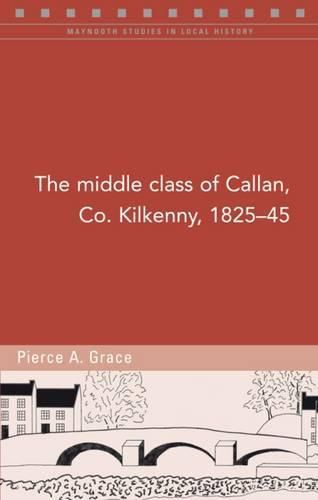Readings Newsletter
Become a Readings Member to make your shopping experience even easier.
Sign in or sign up for free!
You’re not far away from qualifying for FREE standard shipping within Australia
You’ve qualified for FREE standard shipping within Australia
The cart is loading…






This short book uses the remarkable diaries of Callan resident Amhlaoibh O Suilleabhain to examine the changing fortunes of the middle class in one small Irish town just before the Famine. Their private lives, as described in O Suilleabhain’s diaries, were taken up with the universal concerns of their birth, marriage, and death, as well as health, diet, language, and leisure. Their public interests reflected the national scene, with religion dividing them into Catholic and Protestant factions. The small Protestant group, only 3% of the population, controlled all the levers of local power in 1825, but, by 1845, the increasingly educated Catholic middle class were beginning to have a say in the new local government institutions, such as town commissioners and poor law guardians established by the Whig administrations of the 1830s. Only in the face of the cholera epidemic of 1832 did the two communities put aside their religious differences for the protection of all.
$9.00 standard shipping within Australia
FREE standard shipping within Australia for orders over $100.00
Express & International shipping calculated at checkout
This short book uses the remarkable diaries of Callan resident Amhlaoibh O Suilleabhain to examine the changing fortunes of the middle class in one small Irish town just before the Famine. Their private lives, as described in O Suilleabhain’s diaries, were taken up with the universal concerns of their birth, marriage, and death, as well as health, diet, language, and leisure. Their public interests reflected the national scene, with religion dividing them into Catholic and Protestant factions. The small Protestant group, only 3% of the population, controlled all the levers of local power in 1825, but, by 1845, the increasingly educated Catholic middle class were beginning to have a say in the new local government institutions, such as town commissioners and poor law guardians established by the Whig administrations of the 1830s. Only in the face of the cholera epidemic of 1832 did the two communities put aside their religious differences for the protection of all.